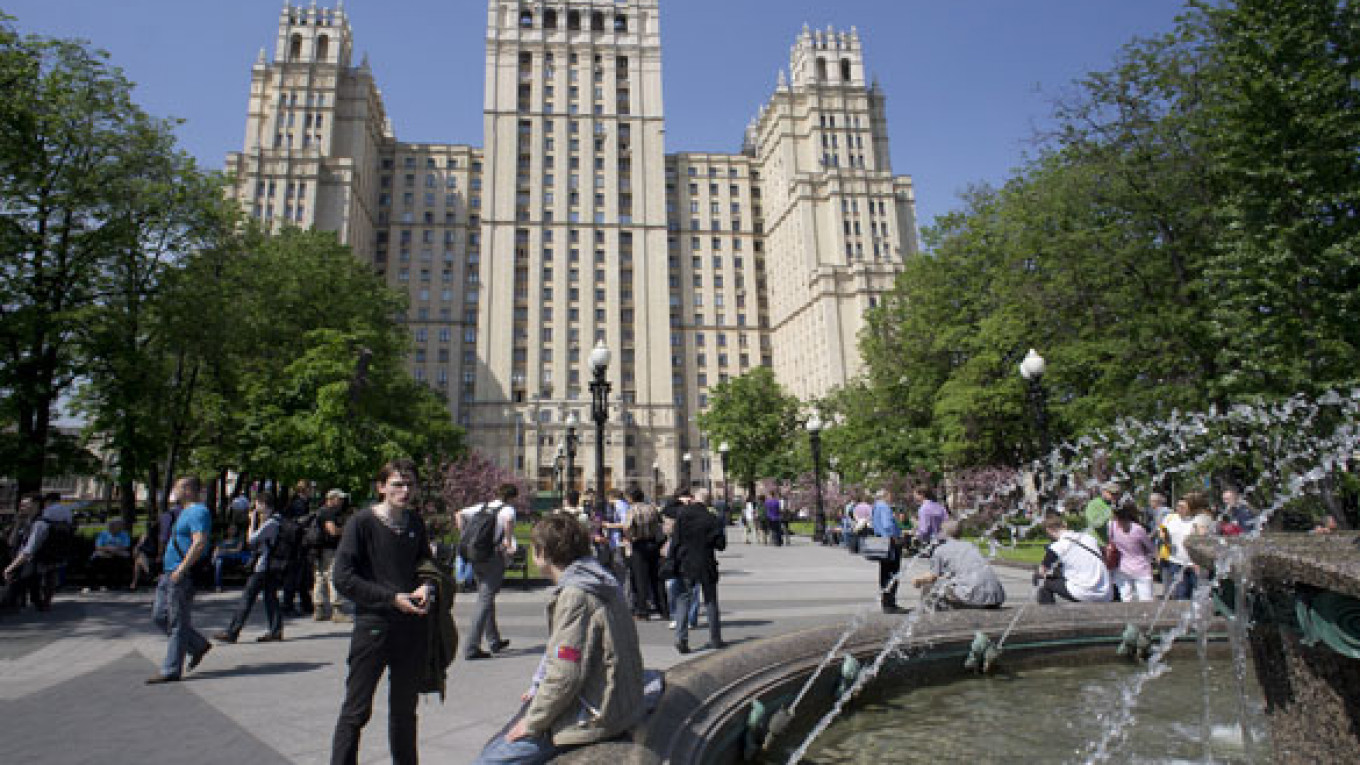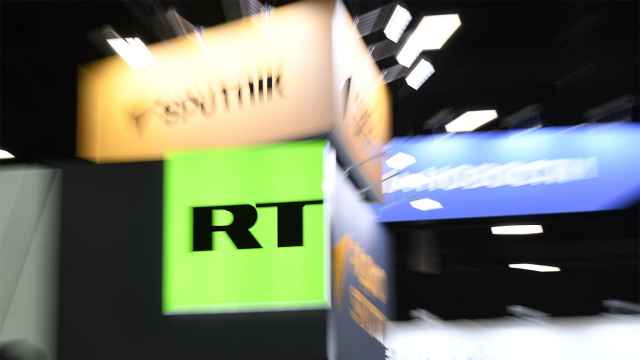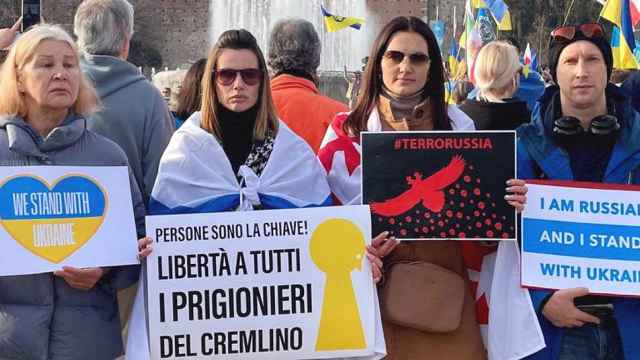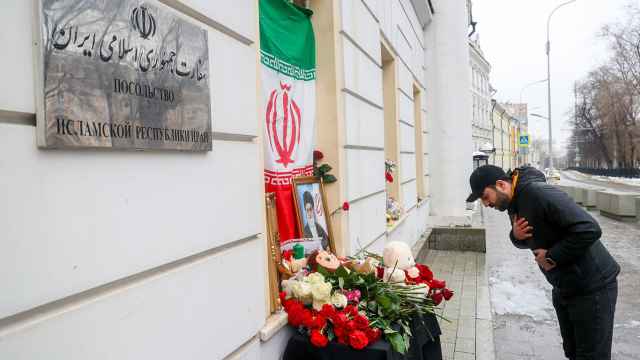The future of an anti-Kremlin encampment on Kudrinskaya Ploshchad looked grim Thursday, as a city lawmaker said local residents wanted it removed, and reported construction plans and a bizarre meeting of local council members all but thwarted a move to a more permanent location.
Moscow City Duma Deputy Kirill Shchitov, who spearheaded an effort to liquidate an earlier encampment at Chistiye Prudy, tweeted an image of what he said was a written complaint from local residents.
“We urge you to help us get rid of this incomprehensible group of people who have become a great hassle for us,” read the complaint, which carried five signatures.
The opposition's Chistiye Prudy encampment was cleared early Wednesday by police after the Basmanny District Court ruled in favor of local residents who called it a safety hazard and a nuisance.
Activists relocated to Kudrinskaya Ploshchad near the Barrikadnaya metro station. Late Wednesday, police raided that encampment, seizing foodstuffs and a cashbox and detaining about 30 people, including opposition leader Ilya Yashin.
Yashin was sentenced to 10 days in prison on Thursday on charges of disobeying police orders. He joins opposition leaders Alexei Navalny and Sergei Udaltsov, who are serving 15-day terms for their role in street demonstrations last week and are scheduled to be released May 24.
Police detained Khimki forest defender Yevgenia Chirikova and several other activists on Thursday evening after she invited demonstrators on Kudrinskaya Ploshchad to a Saturday protest against construction in a forest in the Moscow region city of Zhukovsky, Chirikova said on Twitter.
Given the ever-present risk of eviction, protesters kept up their search for a more permanent setting to hold their “nonstop” protest against President Vladimir Putin, whose inauguration last week sparked sporadic protests that show no signs of abating.
A proposal from a Presnensky District municipal councilwoman to move the encampment to a park on Tverskoi Bulvar and reclassify it as a “festival,” thereby strengthening its legal footing, appeared dead in the water amid reports that the park would be undergoing “long-planned” renovations all summer, an unidentified police official told Interfax.
The official said the 300 million ruble ($10 million) renovation of the park's flora, guardrails and pedestrian walkways had nothing to do with politics and would last from early June through September.
But a meeting of local council members ended abruptly before the proposal was discussed Thursday when the chairwoman — a United Russia member in a chamber dominated by independents — suddenly fell ill, and Communist deputies didn't return after a break, depriving the chamber of a quorum.
Before leaving the hall, chairwoman Yelena Denisova said she opposed reclassifying the encampment as a festival.
“Attempts to give the demonstration at Barrikadnaya official status will be continued,” said Yelena Tkach, the municipal councilwoman who made the proposal, Interfax reported.
Meanwhile, a key supporter of a State Duma initiative to hike fines for illegal demonstrations said the maximum fines stipulated by the bill, which is scheduled to undergo its first reading on Friday, could be lowered.
“The question of changing the maximum and minimum fines will be discussed,” said Deputy Vladimir Pligin, a United Russia member and head of the constitution and state affairs committee, which approved the bill earlier this week.
If passed in its current form, the bill would raise maximum fines for participating in illegal demonstrations from 2,000 rubles ($65) to 1 million rubles ($32,368) and for organizing them from 5,000 rubles to 1.5 million rubles.
Critics of the bill, which include the Public Chamber and a group of public figures headed by former Finance Minister Alexei Kudrin, have described it as draconian, and deputies from all three minority Duma parties say they will walk out of Friday's reading in protest.
A Message from The Moscow Times:
Dear readers,
We are facing unprecedented challenges. Russia's Prosecutor General's Office has designated The Moscow Times as an "undesirable" organization, criminalizing our work and putting our staff at risk of prosecution. This follows our earlier unjust labeling as a "foreign agent."
These actions are direct attempts to silence independent journalism in Russia. The authorities claim our work "discredits the decisions of the Russian leadership." We see things differently: we strive to provide accurate, unbiased reporting on Russia.
We, the journalists of The Moscow Times, refuse to be silenced. But to continue our work, we need your help.
Your support, no matter how small, makes a world of difference. If you can, please support us monthly starting from just $2. It's quick to set up, and every contribution makes a significant impact.
By supporting The Moscow Times, you're defending open, independent journalism in the face of repression. Thank you for standing with us.
Remind me later.






